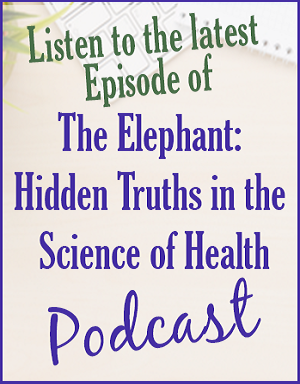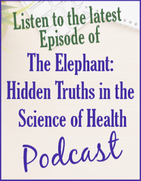Larry A. Law
Myth 2: All Carbs Cause Weight Gain
A candy bar and an apple both contain about 25 grams of carbs. The apple will sustain weight loss while the candy bar will contribute to weight gain. Find your carbs in whole, real foods like fruits, vegetables, including root crops such as potatoes, and unrefined grains like rice and quinoa. Eliminate/minimize processed food sources and you will eliminate the refined sugar carbs that cause weight grain.
Myth 3: Plant-based and Non-fat Milk are Healthier than Whole Milk
For centuries, people lived on whole, full-fat milk (and it was unpasteurized and unrefrigerated!). Cream was cherished—not separated! The belief that all fats were unhealthy came into being in the 1970s and altered millenia of living, while contributing to our current disease state. Non-fat, pasteurized milk depletes essential nutrients especially the fat-soluble vitamins A, D, E, and K. Pasteurized milk is dead milk devoid of any helpful enzymes, bacteria, vitamins, and minerals. Sweetened plant-based milk can contain more sugar per serving than a candy bar. Remember: fat does not make you fat—refined sugar does!
Myth 4: Vegetable Oils are Healthier than Animal Fats
The idea that animal fat was responsible for heart disease caused the conventional-food and fast-food industry to switch seventy years ago to vegetable oils as 'healthier.' Scientists were under the false belief/science that saturated fat (animal fat) caused cholesterol, clogged arteries and was to be avoided at all costs. In the process, they threw out avocado and coconut oil, too, because they were full of saturated fat. Avacados and coconuts cause heart disease? I don't think so! 'Animal' oils are essential for life, fat-soluble vitamins, and good health. Most omega-6 fatty acids in our diet come from vegetable oils, and contain things like linoleic acid (LA). LA is highly inflammatory in the amounts we get in our modern diet. Many doctors feel it is the biggest culprit linked to heart disease today. Despite the mass marketing misinformation by the medical system, it was never cholesterol from animal fat that caused heart disease; the obvious reason is that your brain is 25% cholesterol and nearly every cell in your body makes it—it's that important to heart and brain health! The problem is oxidized cholesterol, which has nothing to do with the actual cholesterol, but rather the lipid taxi cab that carries the cholesterol. When the lipid carrier gets oxidized by too much sugar in the blood, it 'rusts' and that rust is the problem—it is called oxidized low density lipoprotein (LDL). See chapter 27, Heart Disease and the Cholesterol Lie in my book, There's An Elephant in the Room—Exposing Hidden Truths in the Science of Health. By the way, red meat does not cause heart disease either. Too much red meat can cause cancer (see pages 172-174 in the book for the glycobiology of how that happens), but animal fat does not cause heart disease.
Myth 5: Peanut Butter is a Rich Source of Protein
Peanut butter does have protein, but it isn't a comprehensive source of protein. It lacks certain amino acids that constitute a complete protein, so nutritionists view it as an incomplete protein. There are some plants that have a complete set of amino acids (quinoa, lentils, pinto beans, almonds, soy, chickpea, chia seed, buckwheat, and tempeh). In addition, animal foods like eggs, dairy (raw milk), and grass-fed meat are some of the common animal sources. If you do purchase peanut butter, try to avoid the ones where the first ingredient is sugar. Angie converted me years ago to real peanut butter without sugar and I've never looked back! Today, there are a number of brands that sell real peanut butter without any sugar added.
Myth 6: Natural Flavors on Ingredient Labels are Harmless
The fourth most common ingredient in foods made in the United States is listed as natural flavors. Sometimes over 100 individual ingredients are used to formulate a single 'natural flavor'—and often they are not even from nature. Consumers are totally left in the dark and some of these undisclosed ingredients have been linked to neurodegenerative diseases. Due to labeling law ambiguity, it is best to only consume foods with known ingredients.
0 Comments
Leave a Reply. |
BlogArchives
July 2024
Categories
All
|
© Angie's Option GRM. All rights reserved.








 RSS Feed
RSS Feed

